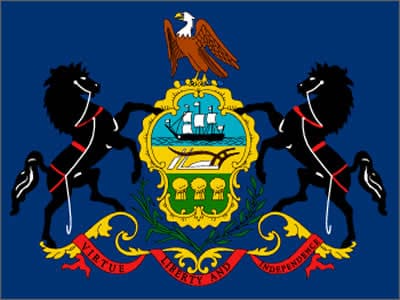The world did not end with 2006’s Unlawful Internet Gambling Enforcement Act (UIGEA); it just became a much more restrictive space. The ever-present irony of America has always stood out as simultaneously hilarious and tragic to proponents of gambling. Puritans who fled European religious persecution decided to brave the Atlantic to set up shop on occupied land. They did so for freedom, or so they claimed. Though after building governments and cities and infrastructure, their first—and continuing—order of business was to regulate everyone’s freedoms based on their Puritanical beliefs, the same thing that caused them to flee from Europe! This isn’t a history article; we’re just bringing up the point that, in America, it’s not new news that gambling is considered an immoral activity. And that’s precisely why it’s big news when a state like Pennsylvania is setting itself up to become the 4th state in the union to allow for legalized online gambling since 2011’s DOJ ruling that this was a state call, not the feds’ call.
The state of Pennsylvania isn’t the world-leading steel producer that it used to be. It’s no longer a captain of industry state, a power player on the world stage in manufacturing and distribution. By and large, the area still thrives with a multitude of businesses, but things are certainly not like they were. But the citizens of Pennsylvania are, by and large, hard-working, blue-collar, middle-class people. They work hard all week. They sit down to enjoy their sports on the weekends. And they want to spend their hard-earned money on what they want to spend it on, not what they’re told to spend it on. So for years now there have been rumblings about a referendum to make online gambling legal in Pennsylvania. Just last week, PA got its first taste of this when the state voted for legalized gambling under house bill 649. This wasn’t done by a state-wide vote; instead, it was done by the Pennsylvania House Gaming Oversight Committee and its insistence that enough is enough with this illegal stuff. It voted to allow for legalized gambling, and now the dance begins.
Back to history for a brief moment. The Constitution of the United States of America makes it abundantly clear that powers not given to the federal government will be left up to states individually. So because there is no anti-gambling law in the Constitution, states should therefore get to dictate whether or not they want gambling. So one would think that a simple vote from the House Gaming Oversight Committee would be more than enough to give Pennsylvania the green light. However, this is unfortunately not the case. It’s only a mere starting point on the road to gambling. What comes next will decide the state’s gambling future.
Now that the state has decided that they want to allow for legalized online gambling, their first and biggest hurdle is the federal government standing there waving the UIGEA in their face. Even though the DOJ said the federal government has no power, the federal government does not want to listen. And with talking points like the “wage gap” and “racism” and “ISIS” in the White House, it’s not as if the president himself is going to weigh in. It basically becomes a battle of attrition between the state legislatures of Pennsylvania and the United States Congress. What typically happens here is either the feds win and states have to appeal, or the states win and the feds take them to a “special” court where the outcome is over before the hearing begins. When given the green light by the federal government to allow for legal state gambling, it’s almost always because a circuit appeal court ruled in the state’s favor. And that will probably have to happen for Pennsylvania before they’re allowed to put their hat in the ring.
The Keystone State has a lot of support on its side, more so than New Jersey had just two years ago when they made the plunge into the pool. So realistically speaking, things are looking very good for the PA online gambling legislation. The Poker Players Alliance is in full support mode, offering their advocacy, and the typical anti-gambling morality groups that stand up front and shout have been reduced to whispers in the background. All of this is a good sign for Pennsylvania and its gambling hopes. If things hold to course, barring any shady moves by the federal government, online gambling could be legal in the state by winter of next year.

